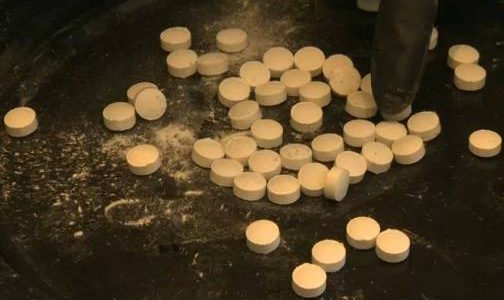Officials with Vancouver Coastal Health say they’ve been dealing with an uptick in overdoses over the past few weeks — and the drugs are being cut with synthetics that naloxone doesn’t work on.

VCH Addiction Program director Keith Ahamad said it’s happening to people who take opioids cut with drugs like benzodiazepines, which are often used in anti-anxiety medications, and others that aren’t used for prescriptions in Canada.
“Carfentanil in itself is an opioid medication that’s actually an animal tranquilizer. We don’t actually use it in humans. So these are medications in Canada that aren’t used for human consumption and they’re being added to the drug supply for reasons that I, truthfully, cannot explain.”
Ahamad said benzodiazepines in particular act similarly to alcohol and decreased breathing. The problem is that opioids do that too — in different ways.
And while naloxone might counteract the effects of the opioids, it doesn’t work on the synthetic additives.
“We’re seeing people still remaining very sedated in a very unique way that we haven’t seen before, and nurses are reporting that they’re seeing strange overdoses where people just aren’t waking up,” said Ahamad.
“Their breathing may be okay, but they’re not waking up.”
Ahamad said naloxone has a short half-life, meaning it doesn’t stay in the body for very long so if people aren’t seeking professional medical attention, the consequences of mixing opioids and benzodiazepines can be deadly.
- Three B.C. men fined, banned from hunting after killing pregnant deer
- B.C. child-killer’s attempt to keep new identity secret draws widespread outrage
- Inquest hears B.C. hostage was lying on her captor before fatal shooting
- ‘We’ve had to make a 180’: What Oregonians say they got wrong with decriminalization
Ahamad said there’s been a sudden spike in the number of those overdoses at St Paul’s Hospital recently. He said the additive is the latest consequence of drug prohibition.
“As we continue to try and chase one thing, organized crime can continue to add risky and harmful substances to the drug supply,” said Ahamad.
“And until we find a way to regulate in a similar way that we do alcohol, we’re never going to be able to get on top of this situation.”
Ahamad said health authorities are playing a game of catch-up right now.
“We can’t control what’s in the drug supply. And the drug supply is poisonous, and it’s toxic, and it’s very risky.”




Comments